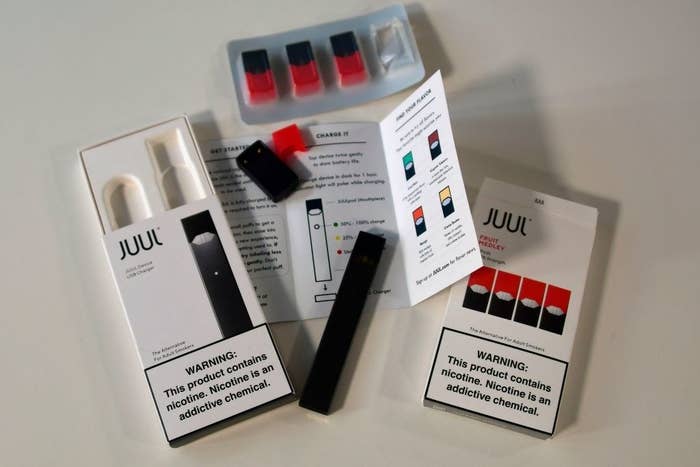The night 18-year-old Daniel Wakefield died of breathing complications, he wasn't wheezing or showing any other signs it was hard to breathe, his mother said.
He was spending the night at his dad's house. She talked to him on the phone around 7 p.m. He texted before going to sleep, and hours later, around 4 a.m., his father found him dead on the couch while getting up for a glass of water.
The teen's death left the family distraught and questioning how a seemingly healthy kid could suddenly die. Wakefield had asthma, but it wasn't something he'd struggled with since he was a young child. He'd been active up until his death.
Now, his family is convinced the culprit is the Juul that was never far from his side since he was 15 years old.
"Juul was the only change in this boy’s otherwise healthy life," said Angela Nehmens, an attorney with Levin Simes Abrams, which filed a federal lawsuit on behalf of Wakefield's mother, Lisa Vail, on Tuesday.
It's the first time a wrongful death lawsuit has been filed over vaping. The lawsuit, which also accuses San Francisco–based Juul of misleading marketing for advertising its products as safe, comes as vape manufacturers face accusations that their flavored products are aimed at hooking children on nicotine and a mysterious lung illness has sickened hundreds of people around the US.
Public health officials have tied 26 deaths since August to the illness, which has been linked to vaping. The Centers for Disease Control and Prevention have said many of those who have become sick vaped THC-based products, but the government agency is recommending that no one vape any type of liquid until a cause can be determined.

Wakefield died Aug. 31, 2018, and unlike more recent deaths, he didn't appear sick before his death. A medical examiner attributed his death to natural causes and noted the teen had asthma.
But asthma hadn't troubled him since he was a young child, attorneys for his family said, and he was an active teen who liked to skateboard and ride BMX bikes. Around the time he was 15, he started vaping Juul, and he quickly became addicted.
By the time Wakefield was 16, he was hospitalized because of breathing and lung complications. He was so addicted to Juul at that point that hospital staff applied nicotine patches during his stay to prevent withdrawal, the complaint said.
Issues with withdrawal are common among young Juul users, said Mahzad Hite, another attorney representing Wakefield's family. She said the firm has encountered teens who have experienced a lack of focus, mood swings, and behavioral issues. In one case, a teen threatened suicide.
“They have stronger withdrawal symptoms [than adults],” she said. “Their brain can’t handle it.”

In one instance, Wakefield became so enraged when he didn't have access to his Juul that he threw a mini refrigerator from his home's top floor, the complaint said.
Today, his parents are left with a feeling of guilt that they didn't do more to stop his vaping habit, Nehmens said. But, she added, they would have done more if they'd known the risks at the time — a lack of knowledge caused by Juul marketing its products as a safe alternative to cigarettes.
As recently as July, a Juul representative told members of Congress that Juul is "totally safe." That prompted a rebuke from the FDA, which said the company hadn't scientifically proven that its products were safer than cigarettes and accused it of illegal marketing practices.
Wakefield exclusively vaped Juul products, and at times, his mother raised concerns about his vaping. But the teen told her he'd read about Juul's safety, and he didn't believe it was addictive, the suit alleges.
It seemed true to his parents; the Juul didn't make him cough or create the symptoms that would have come with frequent cigarette smoking, Nehmens said.
And in the hours before his death, he showed no difficulty breathing or wheezing, the complaint said. Coming a year before the vaping illness made national headlines, his family's attorneys aren't sure whether the medical examiner fully considered how Juul may have contributed to his death.
“Now I think doctors are finally starting to ask that question, but I really don’t think it was known until recently there were all these problems with vaping,” Hite said.
The long-term effects of using Juul remain unknown, Nehmens added. The company often glossed over the nicotine contents of its product until 2017, and the exact contents of Juul pods haven't been revealed by the company. Nehmens questioned the chemicals that could be lurking in its proprietary recipe, and what the effects of inhaling them over years could be.
“I think they’ve really used the public as their guinea pigs while profiting off it at the same time,” she said.
